Search
Remove Ads
Advertisement
Search Results
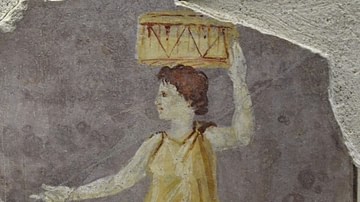
Definition
Hipparchia of Maroneia
Hipparchia of Maroneia (l. c. 350-280 BCE) was a Cynic philosopher who rejected her upper-class life to live her beliefs and share her values on the streets of ancient Athens. She was the wife of the Cynic Crates of Thebes (l. c. 360-280...
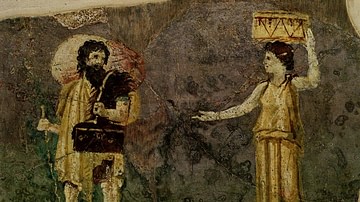
Article
Hipparchia the Cynic: Devoted Wife, Mother, & Outspoken Greek Philosopher
Cynic philosopher, wife of Crates of Thebes (l. c. 360 – 280 BCE), and mother of his children, Hipparchia of Maroneia (l. c. 350 – 280 BCE) defied social norms in order to live her beliefs. She is all the more impressive in that she taught...

Image
Hipparchia of Maroneia
Hipparchia of Maroneia, detail of a fresco showing the Cynic philosophers Crates of Thebes and Hipparchia, c. 1st century CE.
Villa Farnesina, Museo delle Terme, Rome.

Definition
Crates of Thebes
Crates of Thebes (l. c. 360-280 BCE) was one of the most important Cynic philosophers of ancient Greece. He was born to a wealthy family in Thebes but gave away his inheritance after realizing the futility of material possessions. He then...

Article
Ten Noble and Notorious Women of Ancient Greece
Women in ancient Greece, outside of Sparta, had almost no rights and no political or legal power. Even so, some women broke through the social and cultural restrictions to make their mark on history. All of the women did so at great personal...
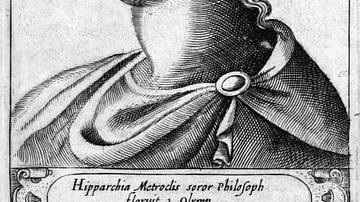
Image
Early Modern Drawing of Hipparchia of Maroneia
An early modern reimagining of the philosopher Hipparchia of Maroneia (l. c. 350 – 280 BCE). From the 1580 CE book Illustrium philosophorum et sapientum effigies ab eorum numistatibus extractae, by Girolamo Olgiati. Reprinted 1583.
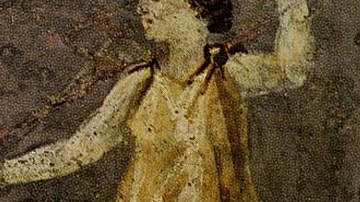
Image
Fresco of Hipparchia of Maroneia
Detail of a 1st Century CE fresco depicting Hipparchia of Maroneia (l.c. 350 – 280 BCE). From the garden of the Villa Farnesina, Museo delle Terme, Rome.

Image
Fresco of Hipparchia & Crates
A Roman fresco depicting Hipparchia of Maroneia (l. c. 350 – 280 BCE) and Crates of Thebes (l. c. 360 – 280 BCE). 1st Century CE. From the Villa Farnesina, Museo delle Terme, Rome.
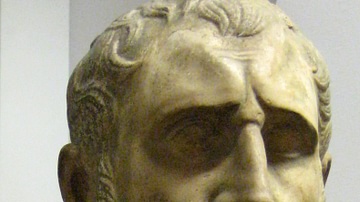
Definition
Zeno of Citium
Zeno of Citium (l. c. 336-265 BCE) was the founder of the Stoic school of philosophy in Athens, which taught that the Logos (Universal Reason) was the greatest good in life and living in accordance with reason was the purpose of human life...
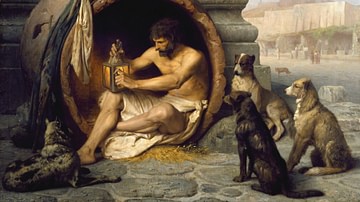
Definition
Diogenes of Sinope
Diogenes of Sinope (l. c. 404-323 BCE) was a Greek Cynic philosopher best known for holding a lantern (or candle) to the faces of the citizens of Athens claiming he was searching for an honest man. He rejected the concept of "manners" as...